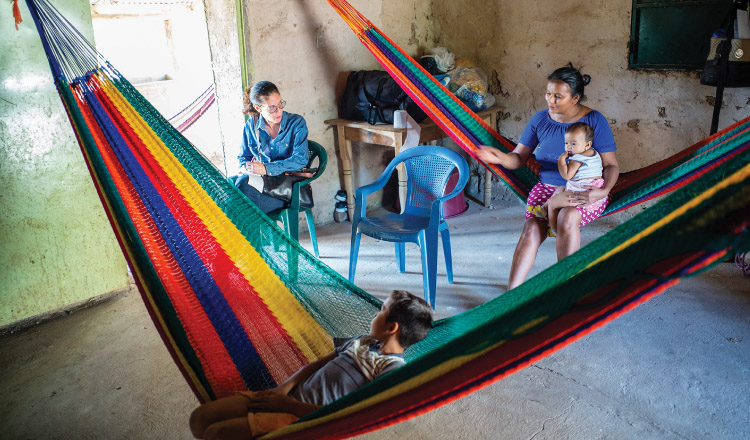Pulitzer Prize-winning journalist Ginger Thompson found her footing at the Purdue Exponent
Ginger Thompson (LA’86) is a senior reporter at ProPublica, a powerhouse in investigative journalism. She came to Purdue to study computer technology. Coming from a “working-class to poor family,” she wanted a sure thing, a career with stability. But Thompson found that Purdue wasn’t the most comfortable fit for an African American student. And she found that her major didn’t suit her.
“I was so unhappy my first year,” she says. Having been editor of her high school yearbook in Texas, she gave the Exponenta try. Soon, she discovered, “I was spending more and more time in the Exponentoffice, and less and less time in the computer lab.”
“I felt like I belonged there,” she says of the Exponent. “I was there all the time, in that office. And I was there all the time because it mattered to me.” The second semester of her freshman year, she changed her major to communication. In time, she became the Exponent’s managing editor. Later, during her journalism career, what stayed with her was an appreciation for the independence of the Exponent, which receives no funding from the school and no editorial oversight. “It wasn’t part of the university. In fact, it took great pride in challenging the university. That stuck with me in terms of speaking truth to power.”
Thompson was the recipient of the 2019 John Chancellor Award for Excellence in Journalism from Columbia Journalism School. As a senior reporter at ProPublica, she primarily writes about the United States’ fight against international drug cartels and the human consequences of that fight. In 2018, Thompson obtained secretly recorded audio of sobbing immigrant children who had been separated from their parents as part of the Trump administration’s Zero Tolerance border policy. Two days after the audio’s release, the administration retreated from the policy. A federal judge ruled against the policy a week later.
“I’m overwhelmed and humbled to have been chosen for this award. I count many of the past recipients among my professional heroes,” Thompson says. “And as for the great John Chancellor, who called himself a ‘frightened optimist’ about the state of America, I share his conviction that whenever the country’s in trouble, journalists are key to turning things around.”
Before joining ProPublica in 2014, Thompson spent 15 years at the New York Times as the Mexico City bureau chief, as a Washington correspondent, and as a member of the investigative unit. Thompson was part of a team of reporters at the Times that won a Pulitzer Prize in 2001 for the series, “How Race is Lived in America.” In 2006, she was awarded the Maria Moors Cabot Prize by Columbia University for distinguished reporting from Latin America.
In addition to reporting, Thompson is a visiting professor at Columbia Journalism School and has taught a course for Spanish-speaking students at CUNY’s Newmark Graduate School of Journalism. She received a bachelor of arts in communications from Purdue, and a master’s in public policy, with a focus on human rights law, from George Washington University.
Read more about Thompson’s time at the Exponent.

